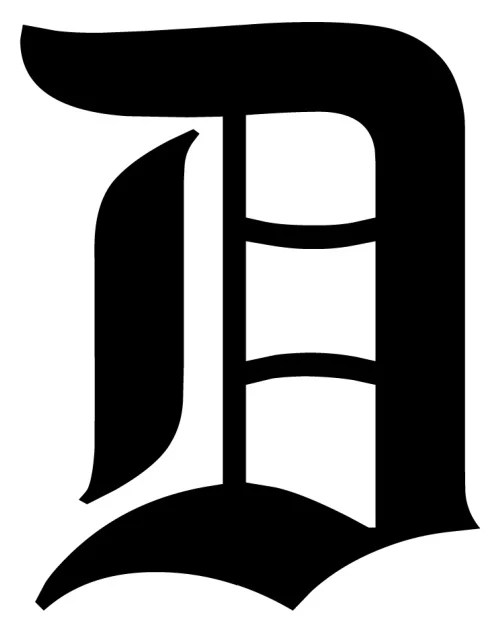Old English D Letter
Old English D Letter - In 1916, the detroit tigers decided to go back to using the block letter “d” and retaining the blue color. A b c d e f g h i k l m n o p q r s t u x y ƿ þ ð æ. You should notice there are four letters which are not. Old english, like most medieval languages, shows a wide range of diacritic marks and unusual characters which are no longer used in the modern language. Printable old english letters in stencil outline. In old english glossaries, words that begin with thorn and eth are grouped together and placed after words beginning with t. Fortunately, most of the more.
Fortunately, most of the more. The old english latin alphabet generally consisted of about 24 letters, and was used for writing old english from the 8th to the 12th centuries. As a rule, it consisted of 24 letters and was used for writing in the 9th — 12th centuries. A b c d e f g h i k l m n o p q r s t u x y ƿ þ ð æ.
Fortunately, most of the more. Of these letters, most were directly adopted from the latin alphabet, two were modified latin letters (æ, ð), and two developed from the runic alphabet (ƿ, þ). The old english alphabet letters below can be generated online for free with our web based letter generators. Old english, like most medieval languages, shows a wide range of diacritic marks and unusual characters which are no longer used in the modern language. You don’t have to pay even a penny to get your desired. The old english latin alphabet generally consisted of about 24 letters, and was used for writing old english from the 8th to the 12th centuries.
The old english d is mlb’s oldest visual icon, connecting tigers legends from cobb to greenberg to kaline to cabrera. After one year of using it, they changed to the old english version. The letters q and z were essentially left unused outside of foreign names from latin and greek. The old english latin alphabet generally consisted of about 24 letters, and was used for writing old english from the 8th to the 12th centuries. In old english glossaries, words that begin with thorn and eth are grouped together and placed after words beginning with t.
Free old english letters from a to z in stencil. You should notice there are four letters which are not. Printable stylish old english / gothic themed stencil alphabets to print. Printable old english letters in stencil outline.
You Don’t Have To Pay Even A Penny To Get Your Desired.
The old english “d” first appeared on the tigers’ uniforms in 1904. Of these letters, most were directly adopted from the latin alphabet, two were modified latin letters (æ, ð), and two developed from the runic alphabet (ƿ, þ). Fortunately, most of the more. A b c d e f g h i k l m n o p q r s t u x y ƿ þ ð æ.
The D’s Popularity Came From A Culmination Of Factors, Most Of Which Had To Do With Timing And A Bit Of Superstition.
You can also save and print any. Printable old english letters in stencil outline. Free old english letters from a to z in stencil. Printable stylish old english / gothic themed stencil alphabets to print.
This Interactive Resource Allows You To Explore A Vast Collection Of Old English Vocabulary.
The old english d is mlb’s oldest visual icon, connecting tigers legends from cobb to greenberg to kaline to cabrera. After one year of using it, they changed to the old english version. In old english glossaries, words that begin with thorn and eth are grouped together and placed after words beginning with t. As a rule, it consisted of 24 letters and was used for writing in the 9th — 12th centuries.
The Letters Of The Old English Alphabet Are:
The old english alphabet letters below can be generated online for free with our web based letter generators. Old english, like most medieval languages, shows a wide range of diacritic marks and unusual characters which are no longer used in the modern language. You can easily navigate through the list using our alphabetical filter, which. You should notice there are four letters which are not.
The letters of the old english alphabet are: Of these letters, most were directly adopted from the latin alphabet, two were modified latin letters (æ, ð), and two developed from the runic alphabet (ƿ, þ). As a rule, it consisted of 24 letters and was used for writing in the 9th — 12th centuries. The letters q and z were essentially left unused outside of foreign names from latin and greek. Typically the glossarist will choose either.







